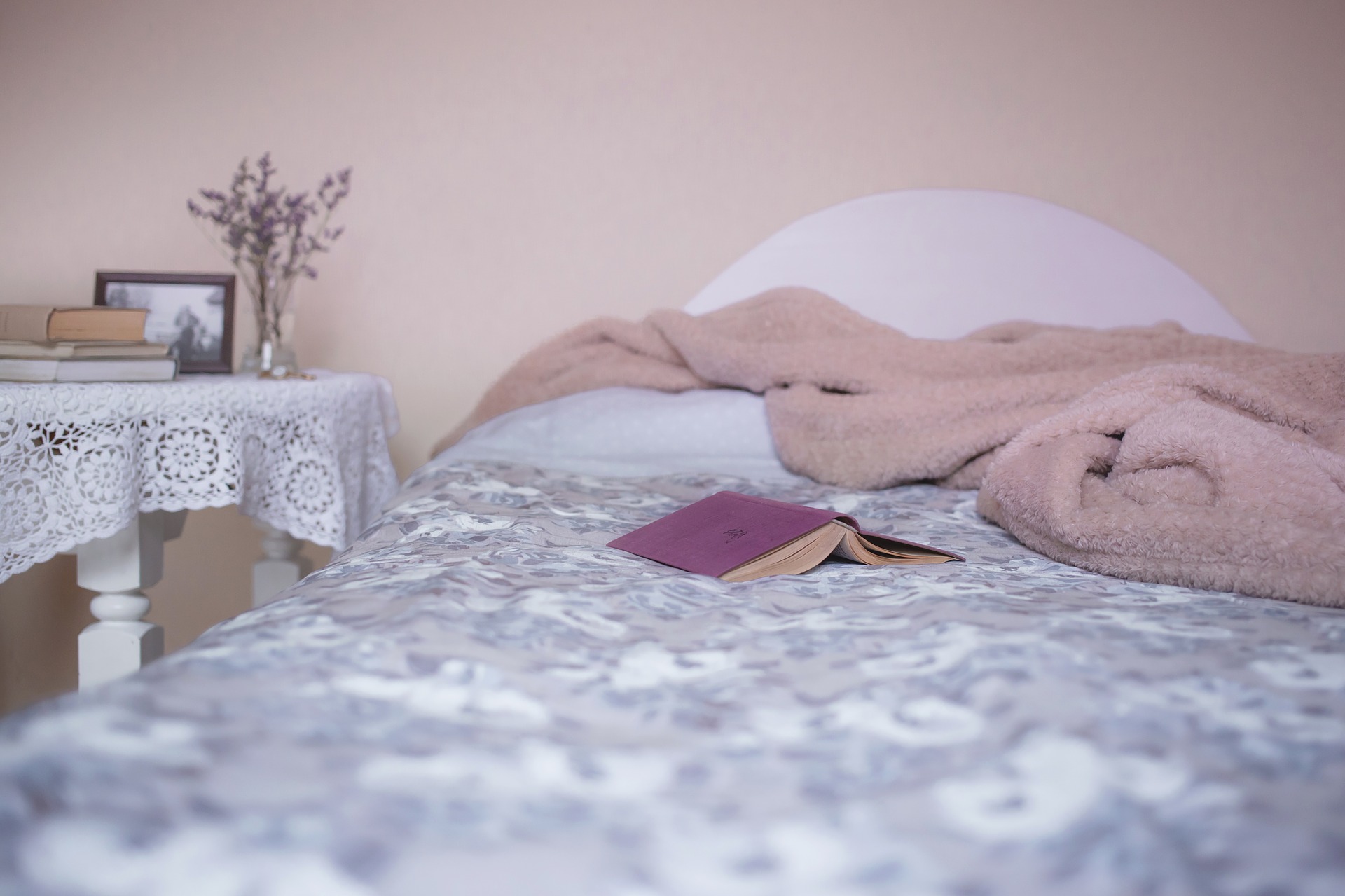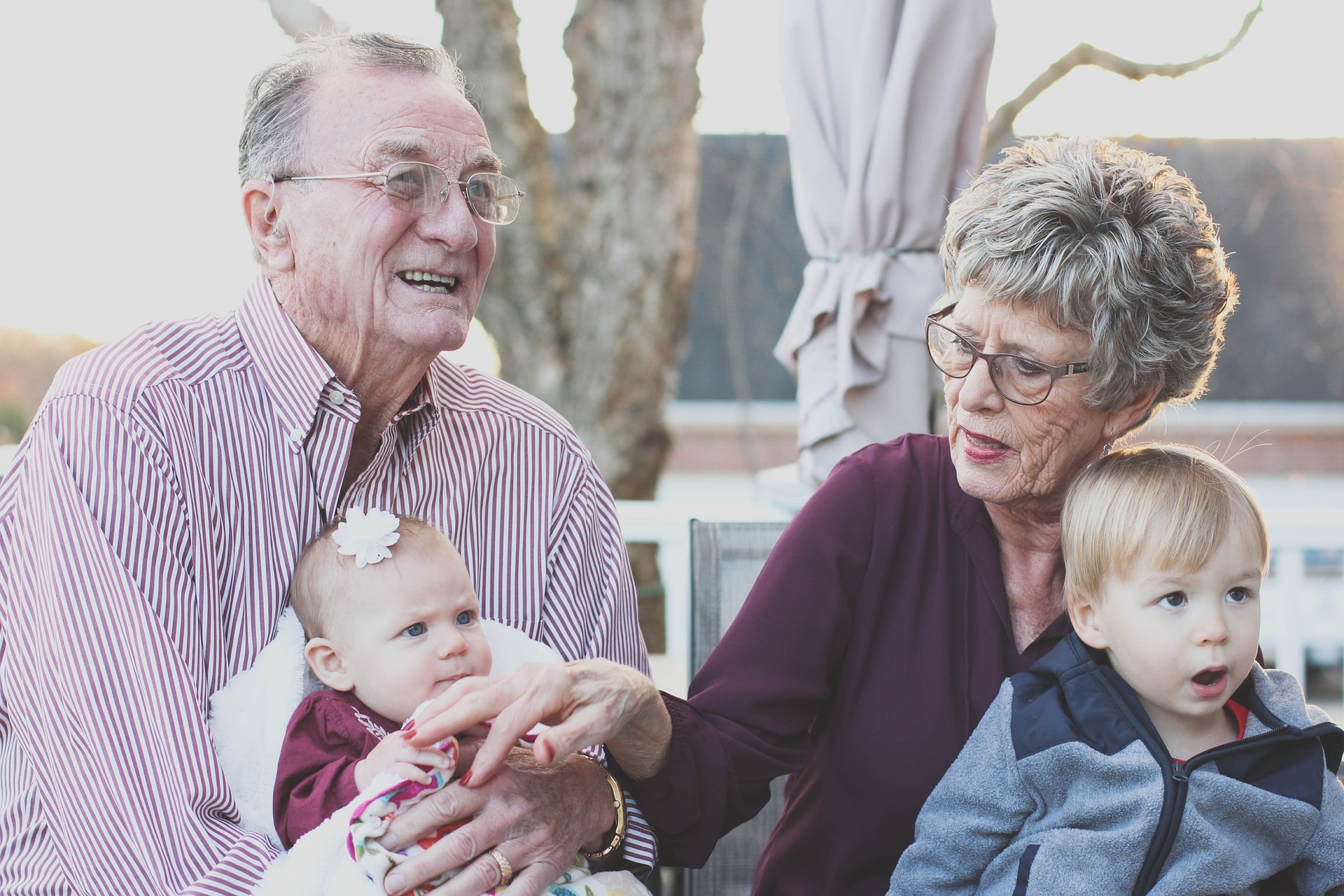
Guest article provided by: londonhut.com
Continue reading “Cooking Together: Recipe Ideas for Elderly Couples”
Category: Blog

Guest article provided by: londonhut.com
Continue reading “Cooking Together: Recipe Ideas for Elderly Couples”

Guest article provided by: londonhut.com

Guest article provided by: londonhut.com

Good sleep is one of the keys to good health, but for many seniors, it’s elusive. There are many factors that can contribute to both the quality and quantity of sleep you get each night, and this, in turn, can contribute to the state of your physical and mental health. When you’re able to rest well, you’ll be better able to cope with stress and anxiety, your circadian rhythm will be in sync, and you can boost your heart health and immune system.
“A good night’s sleep really can make a difference to people’s psychological health. Helping people get better sleep could be an important first step in tackling many psychological and emotional problems,” says Professor Daniel Freeman.
It’s imperative that you talk to your doctor to find out where problems lie when it comes to your ability to get good sleep. Narcolepsy, restless leg syndrome, and insomnia are three common sleep disorders that affect seniors, but there may be an undiagnosed mental health disorder at play as well. Sometimes, it’s something as simple as sleeping with a pet, who can interrupt your sleep. Keep reading for some great budget-friendly tips on how to get your best sleep.
Create a Relaxing Space to Sleep
Having a relaxing space to sleep can help you wind down at the end of the day, so think about your specific needs at night. Temperature control, bedding, sleepwear, and a lack of devices that emit blue light are all important elements, so start thinking about investing in the right mattress and sheets, finding breathable pajamas, and using a sound machine to help you relax. This doesn’t have to be an expensive endeavor; look at affordable retailers such as Target, then double up on savings by shopping their weekly discounts or by taking advantage of cashback offers.
Get Daily Exercise
Daily exercise is important for everyone, but for seniors, it can be hugely beneficial. Working out every day can help improve your motor skills and balance — which prevents falls — and keeps your joints and muscles healthy. When your body works hard, it needs good rest at the end of the day, so you’re able to get a much better quality of sleep. Look for workouts that are gentle on your body, such as walking or swimming, or consider taking up an exercise like yoga, which will allow you to practice mindfulness as you work out. The great thing about yoga is that you don’t need fancy equipment to get started; all you really need is a good mat. Plus, there are thousands of free classes on YouTube, many of which are designed for seniors or for people with joint and mobility issues.
Eat a Balanced Diet
The foods you eat can have a profound effect on your ability to get good sleep. Take into consideration the time of day that you’re eating and drinking, and talk to your doctor about the best diet for your specific needs. Many seniors need extra protein and whole grains in their diets, and you might get additional benefits from the nutrients found in berries and dark, leafy greens if you have arthritis or back issues. The cost of produce can add up. Shop for in-season fruits and vegetables and take advantage of weekly sales, rebates and cash back programs from stores like Walmart to help with your grocery budget.
Getting good sleep is imperative if you want to feel good, and having more energy is never a bad thing. Talk to your doctor about the right workout and diet plan, and if you have any questions about the kind of sleep you’re getting, don’t be hesitant to ask. Rest is just as essential for your well-being as eating right and staying hydrated, and it can have just as many benefits.
Photo via Pexels

The trend toward downsizing and pursuing a more manageable lifestyle is an increasingly popular choice among seniors as more and more of the Baby Boomer generation retires (the Baby Boomer population exceeds 76 million, according to the US Census Bureau). And with children moving out and starting lives of their own, “empty nesters” are discovering the logic and desirability of moving to smaller houses or renting apartments. For people who have spent decades dealing with the upkeep and cost of living in a large house, it can be a very liberating decision, a move that frees them to try new things and visit new places, which would have been impossible just a few years ago.
An Uncomfortable Idea
For people who have been raised to believe that more and bigger are always better (let’s face it, most of have been indoctrinated in this very American ethos), downsizing can be an uncomfortable life change because it means getting rid of so many things that contribute to your identity and have such emotional meaning. However, it’s an absolute necessity if an elderly individual is to truly embrace downsizing — you can’t make the transition by dragging everything you’ve accumulated over a lifetime with you into a smaller home.
And older adults often require the assistance of an understanding and patient loved one who can help them make the difficult decisions. Many seniors are taking advantage of affordable storage facilities if it means not having to throw away an entire lifetime of memories. However, it’s important to make room in your budget before taking the plunge, as you’ll likely have to spend at least $50 per month to store your items. Plus, if you still end up with a lot of stuff to move, you might need to rent a U-Haul truck, which starts as low as $19.95 in some areas — but that’s before you take extra mileage into consideration.
Someone Else’s Responsibility
Empty nester downsizing has given landlords and apartment property managers new opportunities to market to seniors by pointing out that tasks like landscaping, roofing, and maintenance issues become someone else’s responsibility when they move into a rental community. It’s tempting: Many seniors are not interested in getting back into the housing market, investing their hard-earned/hard-saved money in a house that’s comparable to the one they’re leaving, or worse — to one that’s larger and even costlier. So, rental living’s great promise to downsizing seniors is personal freedom — the ability to do what they want, when they want to. It also gives seniors greater flexibility and mobility, particularly for those who want to live near restaurants and bars in urban areas that would have been unthinkable when they were raising children and holding down busy full-time jobs.
Services
This form of living can also be marketed as “service-based” in some respects. This is because older adults accustomed to doing everything themselves tend to see a manager who will change light bulbs, replace damaged or aging carpeting, fix plumbing problems, pick up dry cleaning and, in some cases, groceries as providing important and valuable services.
A Social Dimension
Especially-savvy property managers and landlords have added a social dimension to this style of living, offering events like wine tastings, visits to local art galleries, bridge and card games, book clubs, and more. As such, seniors are able to maintain the freedom of living independently while gaining the social interaction they desire without moving to a senior living facility. Effective security measures add another important and much-desired service.
Downsizing can offer the very thing that empty nesters so desire: freedom and the ability to choose where they’ll live and the kind of lifestyle they want.
Photo via Pixabay

As a senior, you’ve probably spent a lifetime providing for a family, raising children and being a supportive spouse. You can’t do all those things successfully without having sacrificed and placed the welfare of others ahead of yours. You’ve earned the right to be happy, to engage in activities and practice habits aimed at making you happy, and to feel vibrant and connected to loved ones and the world around you. That means following a self-care routine and putting your physical, mental and emotional needs first. Self-care is about being healthy, staying active, feeling happy and fulfilled, and working toward a general sense of well-being.
Benefits of self-care
You’ve put others first for years, but there’s nothing wrong with the notion that you are the most important person in your life. It’s very difficult to be happy and maintain positive relationships with others if your needs aren’t being met. And it’s not just about eating right and getting enough sleep. Self-care includes anything you do to feel good about yourself and your life. Sometimes, it’s making time to watch a favorite movie. Other times, it might mean spending a couple hours having coffee in your favorite bookshop with a couple of friends. These are “just-for-you” activities that you should feel good about. You’ve earned the right for some self-indulgence. You’ll have a more positive outlook, be more motivated and productive, feel energized and attain a higher level of productivity.
Declutter
Being able to relax at home is an important aspect of self-care. It’s pretty difficult to take it easy when you’re surrounded by a jumbled mess. Clutter is a notorious cause of stress; left unattended, it’ll undermine your sense of ease and well-being. Decluttering allows you to downsize and simplify your life by freeing up space and leaving you with less “stuff” to
worry about.
Take some ‘me’ time
Even if you’re a naturally social kind of person, there’s always value in spending time by yourself. Downtime can be valuable because it’s conducive to self-reflection, to sorting out complicated thoughts and feelings. It’s a chance to sit and watch the world go by for a short time while you’re alone with your thoughts. Read a book on your favorite park bench, watch a thunderstorm from the comfort of your front porch or from an easy chair, or enjoy listening to the wind blow through the trees in the front yard. It’s surprising how many memories will pop into your head while sitting quietly and contemplating the world.
Group activities
Regular exercise is an important part of self-care, no matter what stage of life you’re in. There are lots of ways to stay physically active and have some fun. Schedule a group activity with friends, something you can enjoy together. Go for a walk every morning at the mall, sign up for a group water aerobics class, or learn yoga together from one of the many videos available for free via YouTube.
Self-care is an excellent way of using your time productively and meaningfully. Feeling good about yourself and your life helps keep your blood pressure down, makes it easier to sleep, motivates you to engage socially with friends, and to go out and meet new people.
Photo via Pixabay